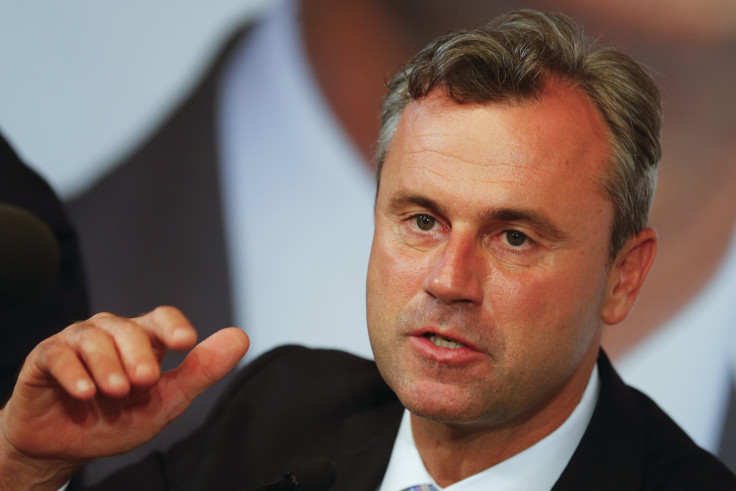Shaken Austrian Government Pledges Action On Asylum After Far-Right Surge

Austria’s centrist government, shaken by a far-right near-victory in the election for president, pledged on Tuesday to take measures on asylum for migrants and to boost security in an effort to win back voters.
Europe’s political establishment, challenged in many countries by resurgent populist and anti-immigration parties, breathed a sigh of relief on Monday when postal ballots swung the election in favor of an environmentalist in a dramatic photo finish.
The far-right Freedom Party candidate, Norbert Hofer, lost to Alexander Van der Bellen by less than one percentage point — a record performance for the party and a watershed for its allies across Europe. A win would have made him the first far-right head of state in the European Union.
Looking at lessons to be learned, Austrian Chancellor Christian Kern said on Tuesday: “One thing is absolutely clear — the protest that was expressed here is to be taken seriously.”
Though he said isolationism and Euroskepticism were not options for export-dependent Austria, Kern, who was thrust into the top job after a party rebellion forced Werner Faymann to resign as head of the government, pledged action on five points, including asylum and security.
“Isolationism and the belief that one can magically make the asylum issue disappear ... is an illusion,” Kern said.
The economy, jobs and cutting through state red tape would be other priorities, though he said it was too soon to give details.
“You will hear from us in the coming weeks,” he said, adding that another aim was to hold a closed-door meeting with opposition parties on possible cooperation.
Frustration with traditional parties of government has fueled Europe’s rising tide of populism, not least in Austria, where the Social Democrats and their coalition partner, the conservative People’s Party, have dominated for decades.
Kern, previously head of the national rail company that handled the mass transit of hundreds of thousands of migrants to Germany during a wave of arrivals last fall, has wider public support than Faymann but remains relatively unknown.
The coalition government must work together until the next parliamentary election in 2018 or face the prospect of a snap vote that polls suggest the Freedom Party would win if it were held now.
Van der Bellen, who beat Hofer by a whisker for the largely ceremonial post of president, told reporters: “I ask all media representatives not to overly dramatize the story of polarization within Austria ... All of us together make up this beautiful Austria.”
© Copyright Thomson Reuters 2024. All rights reserved.





















